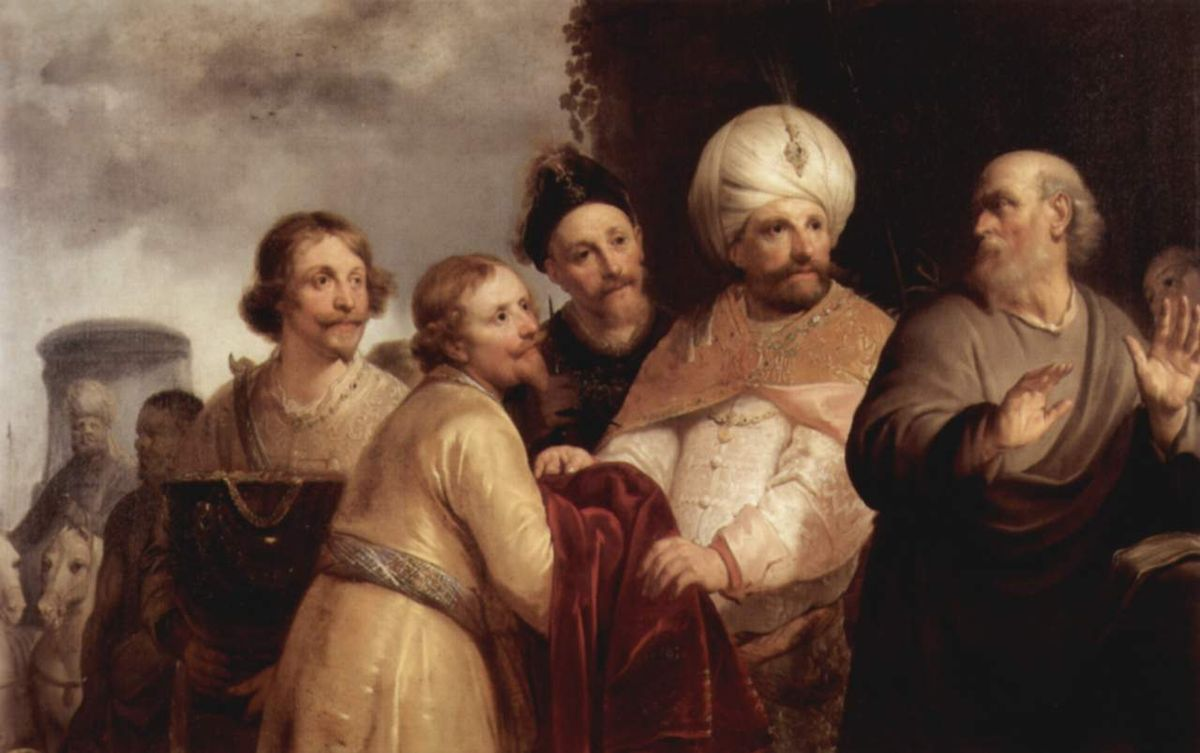Make Your Expectations As Extravagant As God’s Generosity
Rev. Marcel Divine Emeka Okwara, CSsR
Homily for the Fourth Sunday of Advent, Year A
St. Alphonsus Catholic Church, Brooklyn Center, MN
Sunday, December 18, 2022
In almost every other religion in the East and West and across the ages, God or the gods are considered powerful forces that must be begged, pleaded with and sacrificed to in order for human beings to get what they want. Worshippers of these gods believe that their gods are distant, difficult, and reluctant to grant favors. So, to make them give to people what they want, the gods have to be greatly persuaded by embracing extreme moral views, by practicing all forms of excessive mortification like fasting and mutilation of the body. In some situations, making animal and human sacrifices are adopted just to appease and motivate these divinities to give something they are not willing to give out on their own. But the Bible presents an entirely different picture. The Bible is not the story of our quest and longing for God. It is rather the story of God’s quest for us. What we see in other religions is the quest of human beings for God. What we find in other spiritualities is the human person’s search for God. But the Bible is not that story. It is not the tale of our extravagant invocation to God. It is the story of God begging us to ask more of him. I know this sounds strange; it is counterintuitive. But that is just what it is.
In today’s first reading and the Gospel, we find this interplay in full display. In the first reading (Isaiah 7:10-14), we hear of Ahaz. Who was he? He was a young and inexperienced king who found himself in a very difficult situation. At that time, the powerful Syrian army was marching towards Israel, and Israel’s allies and enemies were forming various kinds of agreements, and the young Ahaz was in the middle of it all. He was confused and didn’t know what to do. Then Isaiah the prophet tells him to put his trust in the Lord, but Ahaz hesitates. The prophet encourages him, “Ask for a sign from the Lord, your God; let it be deep as the netherworld, or high as the sky.” What does this mean? The young king was told to dream big, to aim higher, to trust unreservedly, and to ask God for something extraordinary. Unfortunately, Ahaz dithers and says, “I will not ask! I will not tempt the Lord!” Check this out! God is not demanding more excellence from the king. God is not giving him a list of things to do before God can give him what he wants. God is simply telling him to dream big, aim higher, ask for something mighty and extravagant. Ask for something extremely huge. Ask for a crazy sign if you want to. Let it be as high as the sky and deep as the netherworld. In other words, God wants to do something great for Ahaz if only Ahaz will be open to it. God never hesitates to give us grace; we are the one who hesitate to receive it. What is fantabulous about this story is that even though Ahaz refused to ask for a sign, God still gives a sign anyway: “…the Lord himself will give you this sign: the virgin shall conceive, and bear a son, and shall name him Emmanuel.” What’s Emmanuel? God is with you!
After about seven hundred years, the prophetic declaration of Isaiah was fulfilled in a little town of Nazareth in Galilee, and precisely in the simple home of Joseph. Today’s Gospel (Matthew 1:18-24) says that after Joseph the carpenter had engaged a young girl named Mary, he later received devastating news that the woman was pregnant. The implication is that she is not faithful to Joseph. As would be expected, Joseph was heartbroken. The young girl he loves has betrayed him. The life he had planned with her has been shattered. In his community, this very act of infidelity will humiliate Joseph; and if the law of Moses is applied to the letter in this case, Mary will be stoned to death. Sad and disappointed, Joseph resolved to divorce Mary quietly so as to save her life and reputation. What does Joseph and Ahaz have in common? First, they were both young men. I know we often assume that Joseph was an old man, but there is nothing in the Bible that suggests such. Two, both were under immense pressure. Three, they were also confused. It must have been so difficult for Joseph to fall asleep the night he realized that Mary was pregnant. Did he ask God for a sign? We don’t know. In the entire New Testament, no word of Joseph is ever recorded. But the Gospel says that night Joseph did receive a sign in his dream. And it is something he could never ever have imagined: “the angel of the Lord appeared to him in a dream and said, ‘Joseph, son of David, do not be afraid to take Mary your wife into your home. For it is through the Holy Spirit that this child has been conceived in her. She will bear a son and you are to name him Jesus, because he will save his people from their sins.” Joseph’s despair and confusion has turned into a profound joy.
Sisters and brothers, as the season of Advent comes to a close, it is important to remember that what was promised to Ahaz, what was promised to Joseph is also promised to us. God wants to give us life. He wants us to dream big. He wants our expectation to be as extravagant as his generosity. Christmas is coming. God is becoming one of us. The greatest act of humility in human history is unfolding before us. God who created one hundred billion galaxies, and each galaxy has one hundred billion stars created us in his image and likeness. And once we got into trouble with original sin, he came to be with us. We are not talking about faith like the Greeks and Romans where God is above the clouds and occasionally they do come below the clouds to take advantage of the people. In the Bible, our God comes down below the clouds to love us, to save us and give us the greatest gift of eternal life. The implication of St. Augustine’s assertion, “If we praise God, God is not made any greater. If we don’t praise God, God is not made any smaller. But if we praise God, we become greater and if we don’t praise him, we become smaller,” is that God does not need us. God is self-sufficient. God is blessed within himself. However, God wants us. God wants you. Christmas is all about God desiring us, wanting us to be with him in a covenant relationship. When the virgin conceived and gave birth, the child is called Jesus, which means God is my salvation, and that is God’s greatest gift to us. At Christmas, we celebrate the stubborn fact that God has pursued us. God wants us. God wants to adopt us as sons and daughters. God has not left us as orphans to figure things out ourselves. Christmas is so much more. It is not about Santa Claus, gifts, food etc. It is about being adopted. Christmas is about being pursued by God; it is about being overcome by his love. As Christmas draws near, let us prepare to meet God with an open and willing heart— a heart of a son, a heart of a daughter.













